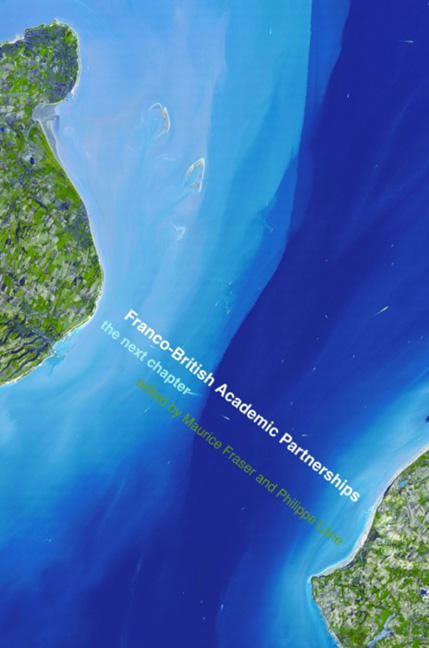Book contents
- Frontmatter
- Contents
- Notes on Contributors
- Foreword by His Excellency
- Foreword
- Preface
- Part I: Teaching and Training Partnerships
- Part II: Research Partnerships
- Part III: Broader Perspectives
- Appendices: Addresses and Speeches at the Franco-British Academic Partnerships Seminar, French Institute, London, 5 February 2010
Preface
- Frontmatter
- Contents
- Notes on Contributors
- Foreword by His Excellency
- Foreword
- Preface
- Part I: Teaching and Training Partnerships
- Part II: Research Partnerships
- Part III: Broader Perspectives
- Appendices: Addresses and Speeches at the Franco-British Academic Partnerships Seminar, French Institute, London, 5 February 2010
Summary
The landscape of Franco-British university cooperation is rich, verdant and increasingly densely wooded. There is no one vantage point from which to survey it in its entirety: the most rewarding way to explore it is to pause over some of the most arresting trees and imposing clusters. That is the approach taken in this book. But it also sets itself a more ambitious target: to map new terrain for planting and nurture, for education and research, like horticulture, are perhaps our most tangible commitment to future generations.
The book is the fruit of a one-day conference on Franco-British cooperation in the higher education sector, held at the Institut français in London in January 2010. The conference, organised in association with the Franco-British Council, was almost certainly the largest-ever symposium on the subject, bringing together 220 top policymakers, scholars, scientists, administrators and journalists.
The day's agenda was a very full one. The starting-point for the discussions was, as the French Ambassador Bernard Émié says in his Foreword, a cause for celebration: the steady increase in joint programmes and qualifications offered by universities in Britain and France, and the proliferation of research partnerships, generating real added value. But the economic and financial backdrop for the higher education sector right now is more than usually challenging. To say nothing of the always fraught issues of university autonomy and the contentious boundaries of public and private.
But this volume is not the place to tackle such vital and pressing issues as public funding cuts, unequal access, grade inflation and, in the United Kingdom, the need to rebuild the teaching of foreign languages – including, crucially, French – in our schools. Rather, the idea is that we should climb blinking out of our separate silos into the sunlight, to exchange ideas on how we can take our many flourishing academic partnerships – jointly taught programmes, research collaboration, exchanges of personnel and students – to the next level. There is a lot of work to do. If we are to restore that very medieval and Renaissance idea of a borderless community of students and scholars, we will need to dismantle many more barriers to mobility – not only logistical and financial, but psychological and linguistic as well.
- Type
- Chapter
- Information
- Franco-British Academic PartnershipsThe Next Chapter, pp. xxv - xxviPublisher: Liverpool University PressPrint publication year: 2011

